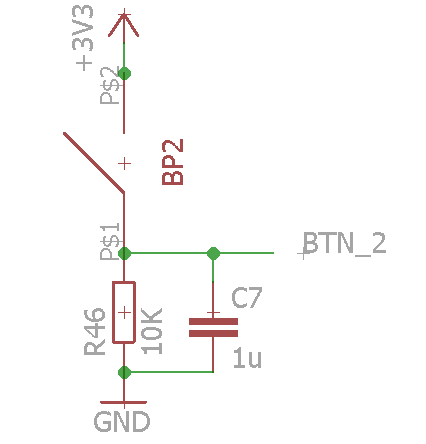Hi,
I have a push button connected in this way to pin 3.5 (input). When I press the button the micro reset.
If I add a 1K resistor the problem disappear. In both cases the the 3.3V doesn't drop down when I press the button, so I don't understand why the micro reset.


